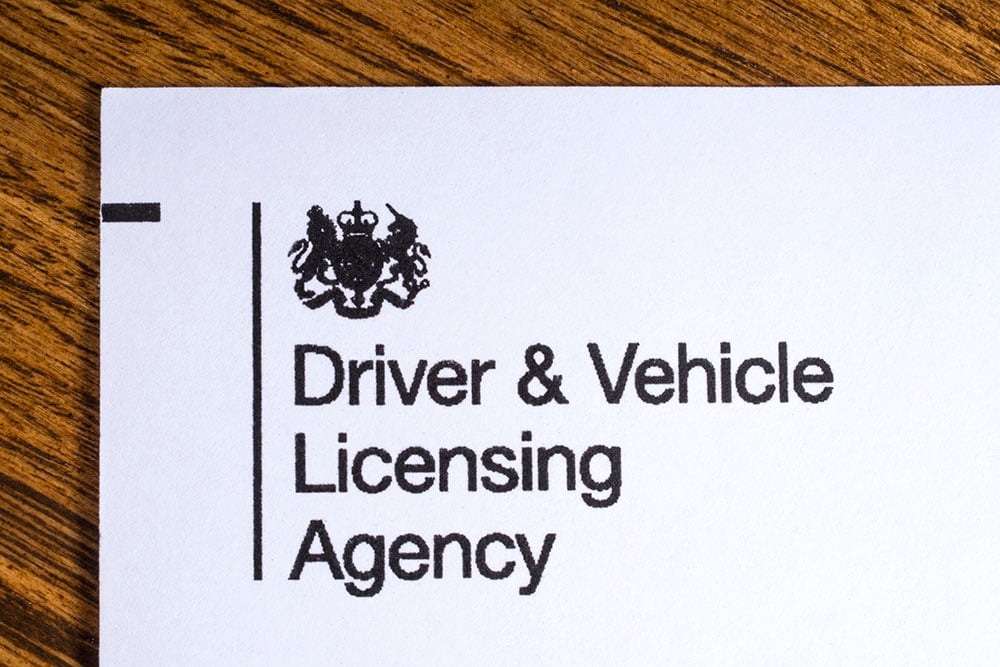DVLA Check
A DVLA car check is a vital process that allows individuals to access official vehicle information directly from the Driver and Vehicle Licensing Agency (DVLA) in the UK.
By utilizing the vehicle's registration number, this service provides valuable and accurate details about the vehicle's legal status, tax records, MOT history, and essential specifications.
Enter your vehicle registration below to see details held by the DVLA for free.
- £30k data guarantee
- Rated Excellent
- 8,000,000+ scans completed
- Instant report

What does a DVLA Check Include?
With a DVLA car check, individuals can verify crucial information such as the vehicle’s make, model, color, year of manufacture, and date of first registration. This official service serves as a valuable resource for car buyers, sellers, and owners alike, enabling them to ensure compliance, make well-informed decisions, and gain confidence in the legal and administrative aspects of a vehicle’s registration and history.
Frequently asked questions about DVLA Car Check
What is a DVLA car check?
A DVLA car check is a process of obtaining official vehicle information directly from the Driver and Vehicle Licensing Agency (DVLA) in the UK. It allows individuals to access data regarding a vehicle’s legal status, tax records, MOT history, and basic specifications.
How can I perform a DVLA car check?
You can perform a DVLA car check by visiting the official DVLA website and using their online services. Enter the vehicle’s registration number and follow the prompts to access the relevant information.
What information can I obtain through a DVLA car check?
A DVLA car check provides information such as the vehicle’s make, model, color, year of manufacture, date of first registration, taxation status, MOT history, and other essential details recorded by the DVLA.
Do all vehicles have to pay to enter a Clean Air Zone?
The charging scheme in Clean Air Zones varies depending on the city and the type of vehicle. In some CAZs, only high-polluting vehicles that do not meet emission standards are subject to charges. Low-emission vehicles, such as electric cars, may be exempt from charges.
Is a DVLA car check free?
The DVLA offers some basic information for free through their online services. However, certain detailed reports or comprehensive checks may require a fee from other providers such as Motorscan.
Can I check the previous owners of a car through a DVLA car check?
The DVLA car check typically provides information on the vehicle. For a more comprehensive ownership history, consider using our premium vehicle history check service.
How accurate are the results of a DVLA car check?
The information provided through a DVLA car check is sourced directly from DVLA records and is generally considered reliable and accurate. However, it’s important to note that the DVLA’s database is updated periodically, and there could be a slight delay in reflecting the most recent changes or updates.
Remember to always exercise due diligence and consider using comprehensive vehicle history checks from trusted providers to obtain a more detailed report on a vehicle’s background and condition. We offer a comprehensive vehicle history check for just £9.99
Additional information to check along with the DVLA car check
While conducting a DVLA car check provides valuable insights into a vehicle’s ownership, registration, taxation, MOT history, mileage. Here are a few more key details to consider for a comprehensive car check that includes outstanding finance, written-off, stolen status and more.
Step 1: Vehicle Ownership Confirmation
– If you want to confirm the current and previous owners of a vehicle, access the DVLA’s records.
– Provide the necessary vehicle details, such as the registration number, to initiate the search.
– The DVLA will provide information on the number of previous keepers recorded for the vehicle.
Step 2: Verifying Registration Details
– Ensure the accuracy of a vehicle’s registration details, including make, model, color, year of manufacture, and date of first registration.
– Access the DVLA’s records and input the vehicle’s registration number.
– The system will display the registration information associated with the vehicle.
Step 3: Checking Taxation Status
– Verify the taxation status of a vehicle to comply with legal requirements.
– Use the DVLA’s records to check if the vehicle has valid road tax (Vehicle Excise Duty) or is currently untaxed.
– Enter the registration number of the vehicle to retrieve the tax status information.
Step 4: Accessing MOT History
– Evaluate a vehicle’s roadworthiness and maintenance record by accessing its MOT history.
– Visit the DVLA’s website or the official government MOT history website.
– Enter the vehicle’s registration number and access the detailed MOT history, including test results, advisories, failures, and passes.
Step 5: Mileage Verification
– Ensure the accuracy of a vehicle’s recorded mileage and identify potential discrepancies.
– Use the DVLA’s records to compare the recorded mileage with what the seller claims.
– Input the registration number to retrieve the mileage information associated with the vehicle.
Step 6: Checking for Outstanding Finance
– When considering a used vehicle purchase, verify if there is any outstanding finance on the vehicle.
– Utilize an outstanding finance check to check for outstanding loans or finance agreements.
– Gather information to assess the potential impact on ownership transfer.
Step 7: Stolen Vehicle Check
– Prioritize security by verifying if a vehicle has been reported stolen.
– While not directly provided by the DVLA check, explore specialized services or contact appropriate authorities for a comprehensive stolen vehicle check.
– Ensure the vehicle’s legal status and protect yourself from potential risks.
By following this guide and accessing relevant information through a DVLA check, you can make informed decisions when buying, selling, or assessing a vehicle’s background and legality.
Get a free check